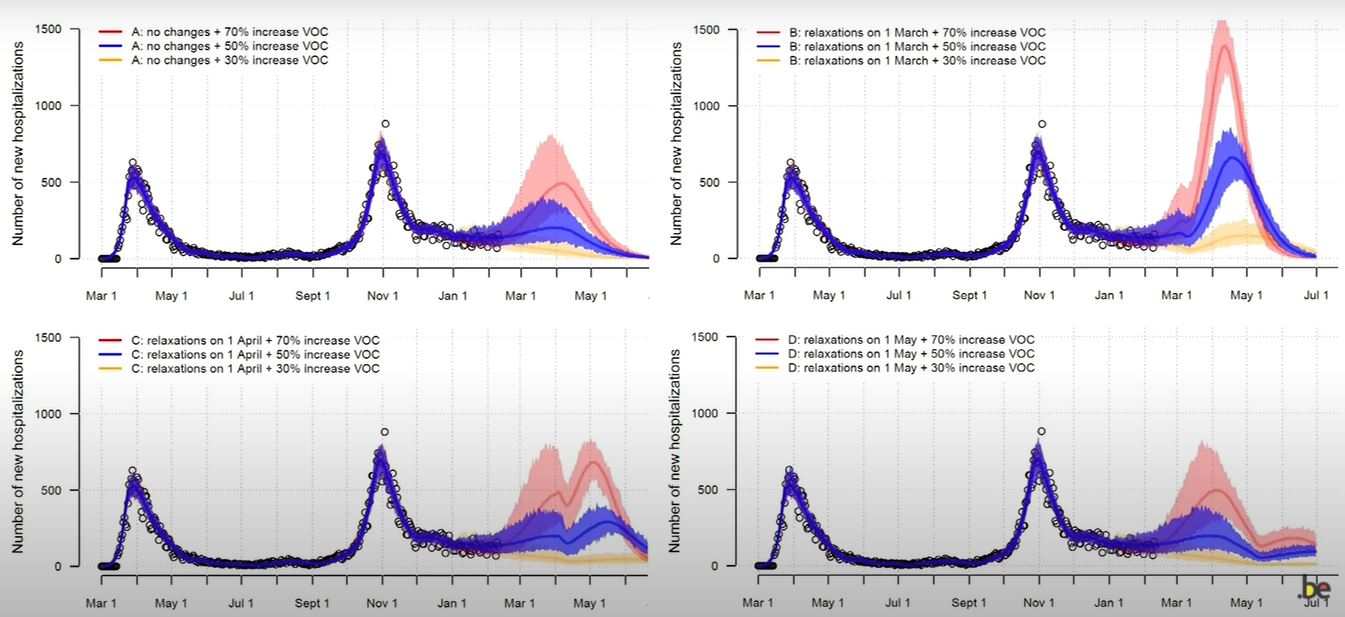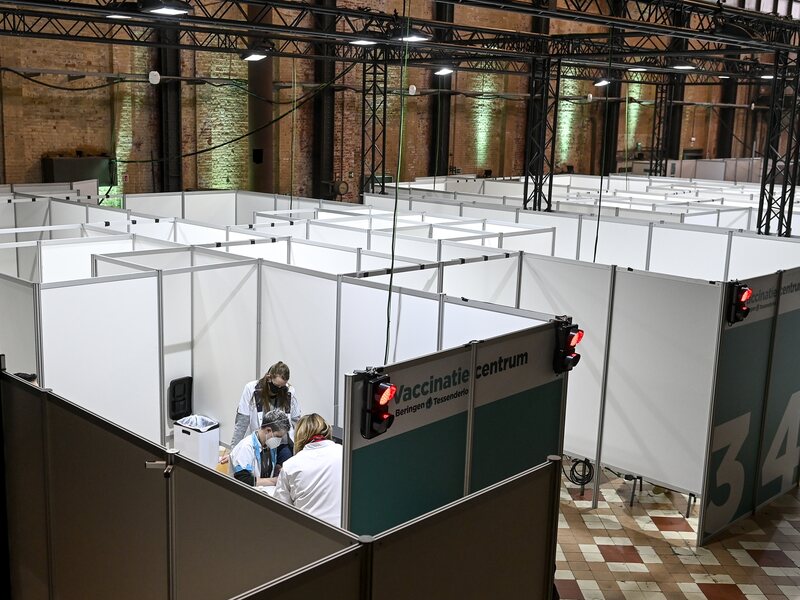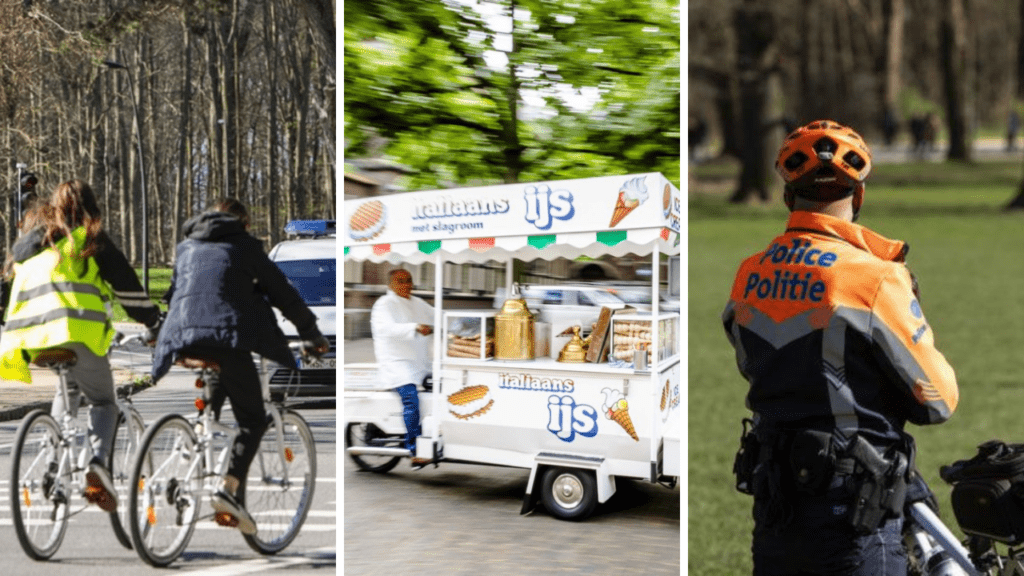In an unexpected move, Prime Minister Alexander De Croo yesterday called on experts and scientists to explain what would happen if Belgium lifted its rules at certain stages of the pandemic.
Four different mathematical models - or scenarios - showed how the curve of the daily hospital admissions would evolve if the situation stayed as it is now, if measures are relaxed on 1 March, 1 April, and 1 May, taking into account the more infectious British coronavirus variant.
"We have to be patient," said biostatistician Niel Hens when explaining the models. "But what is very clear is that there is perspective: all scenarios point very strongly to a decrease in the curve towards the summer holidays.”
Looking ahead at Friday's meeting, De Croo stressed that, while he understands the need for perspective, "we have to remain cautious, and avoid a third wave at all costs.”
“But, we are approaching the point where the risk of a third wave seriously diminishes. Is that point tomorrow or next week? I think the presentations show not,” he said. “But that point is also no longer very far away.”
What do you think? Will some relaxations be announced by the end of the week? Will things stay the same?
Let @johnstonjules know on Twitter (Or @maithechini, since she wrote it today).
Belgium in Brief is a free daily roundup of the top stories to get you through your lunch break conversations. To receive it straight to your inbox every day, sign up below:
1. Tool compares countries’ different coronavirus responses
Belgium is currently one of the countries with the mildest coronavirus fighting measures in Europe, according to the stringency index, a tool developed by the University of Oxford.
The tool contains data for more than 180 countries, and bases its scores on 20 different indicators, such as school closures, social restrictions and travel bans. Read More.
2. Consultative Committee will base rules on these four models

During a press conference on Monday, biostatistician Niel Hens presented four different long-term models, which will form the basis for the Consultative Committee’s decisions next Friday.
For each of the four scenarios, there are three different curves, in three different colours. The red colour assumes that the British coronavirus variant is 70% more infectious, the blue curve assumes 50%, the yellow colour assumes a greater transmission rate of 30%. Read more.
3. Expand outdoor bubble to eight people, Deputy Prime Minister says
A proposal to expand the outdoor social bubble of four to eight people by Deputy Prime Minister Petra De Sutter and Green party leader Meyrem Almaci could get the government’s support at Friday’s Consultative Committee.
The Green MPs highlighted that seeing other people outside could be an enormous boost for people’s mental wellbeing. “If relaxations are possible, we want the bubble of four to be expanded to eight,” De Sutter and Almaci said on Monday. Read More.
4. Poor administration means many people don’t show up for vaccine

More than half of all care providers whose turn it is to be vaccinated do not show up in the vaccination centre in Overijse (Flemish Brabant), according to professor Dirk Devroey (VUB).
The main problem is not so much that people do not want to be vaccinated, but rather the loss of emails with invitations, according to Devroey, who is a medical expert in the centre. Read More.
5. Ice cream trucks can’t drive around under current measures
Ice creams trucks in Belgium will not be allowed to drive around under current measures, meaning that those who usually rely on door-to-door sales during the peak season will have to adjust their business model.
Food stalls and ice cream vans are currently only allowed to sell their products from a fixed location with the permission of the municipality or city concerned, according to the Federal Public Economic Service. Read More.
6. Police coronavirus measure guidelines are clear, Interior Minister says
Interior Minister Annelies Verlinden met with the police on Monday following reports that the police acted in different ways when coronavirus fighting measures were violated during the weekend.
“The guidelines were discussed today at the weekly meeting with the police. It was established that the instructions and directives given to the police forces are clear, and that all police forces are aware of these instructions and directives,” said Interior Minister Annelies Verlinden. Read More.
7. Parent challenges Molenbeek mask requirement for children over six
While most coronavirus measures don’t ask children under the age of 12 to wear a face mask, the Molenbeek-Saint-Jean neighbourhood of Brussels requires anyone over six to wear one during after-school care programs – a rule one parent is now challenging. Read more.
Maïthé Chini
The Brussels Times

